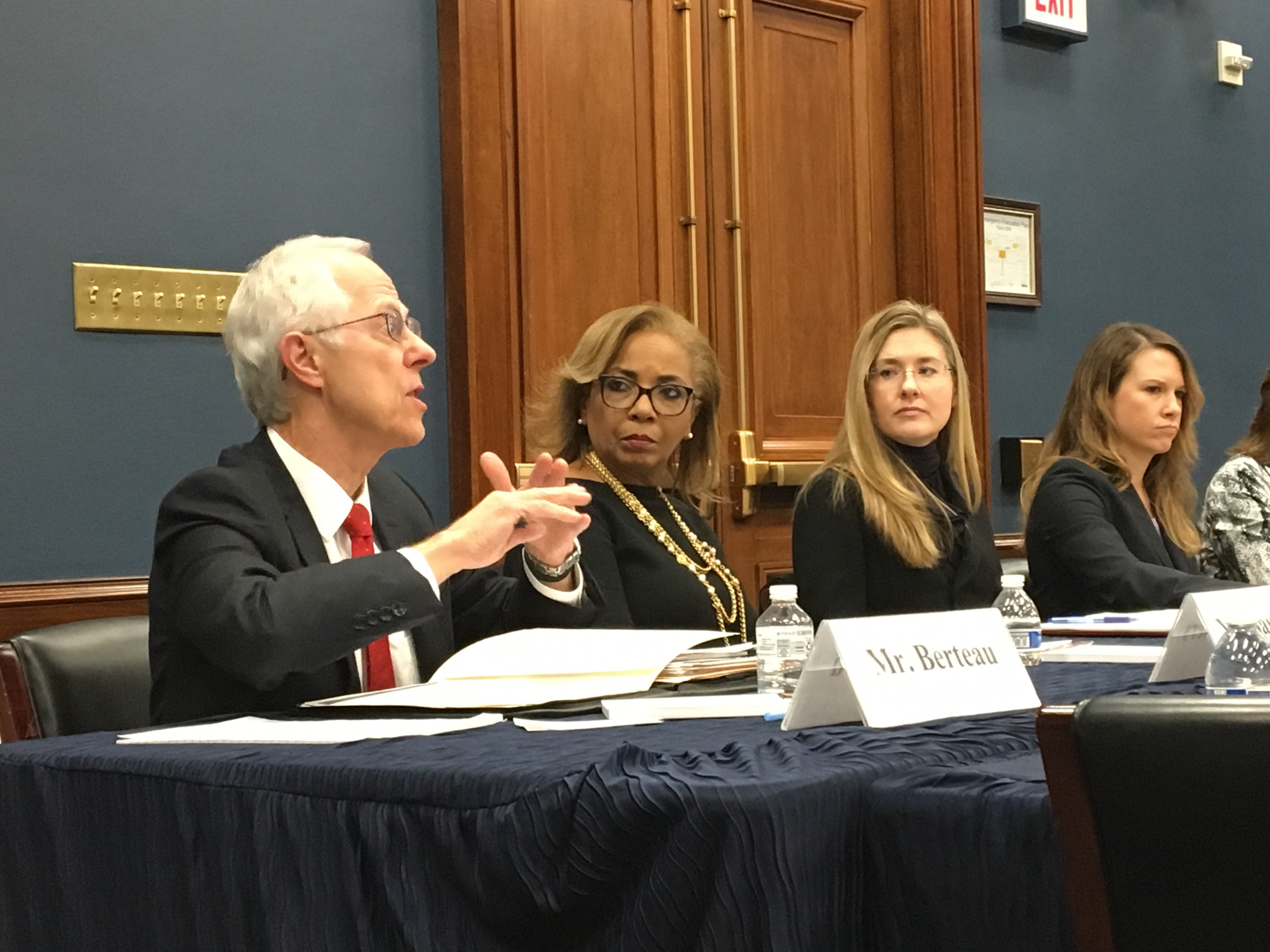| Challenges Facing Advanced Small Businesses |

December 14, 2017
By David J. Berteau
PSC President & CEO
PSC in November was privileged to take part in a House Small Business Committee roundtable on small business set-asides and post-graduation success of mid-tier firms. The forum, entitled "Leaving the Nest: Challenges Facing Advanced-Small Businesses," explored the barriers to success for advanced-small or mid-tier firms. Committee Chairman Steve Chabot hosted the discussion, and members of Congress from both sides of the aisle focused on potential changes to current policies that would better incentivize small business growth.
Chairman Chabot and other members highlighted the challenges, referring to the mid-tier businesses as operating in “a murky limbo,” in which companies may be too large to benefit from small business set-asides yet too small to compete with larger firms.
PSC emphasized the misalignment between our national economic policies, geared toward encouraging small business growth and hiring, and the government contracting policies that discourage it.
Under the current policies, small business contractors are rewarded for staying small, not for growing, so they can remain below certain thresholds. Nowhere else in America is it government policy to limit job creation and disincentive growth.
PSC called on the Committee to take concrete legislative action to promote small business success, which fosters innovation, competition, and a robust business base to meet the government’s needs. Specifically, PSC's recommendations included:
Gathering better data for proper oversight:
There is currently no publicly available source of information of the number of jobs created by small business programs, only the prime contract dollars that flow. The small business graduation rate is also unknown, as is the ultimate status of companies that graduate—do they succeed, deliberately scale back to fall again beneath the threshold, become acquired, etc? Without that information, federal agencies, Congress, and stakeholders cannot determine if the program objectives are being met. Congress should require that such data be collected and made public.
Updating company information in a timely manner:
The Small Business Administration is required to conduct a detailed review of all size standards and to make appropriate adjustments. SBA must review at least one-third of all size standards during every 18-month period and review all size standards at least once every five years. In some instances, this means SBA is awarding contracts to companies that were deemed small half a decade ago without regard to changes in the market, technology, or the industry as a whole. Congress should act to consolidate these updates and make them more current.
Crediting:
Prime contractors who use, mentor, and promote small business subcontractors get too little credit for that under current scoring systems. The government should either give equal credit or eliminate the requirement.
Enhancing communication between government and current and potential small business contractors:
A PSC priority is to expand the use of comprehensive debriefings, so contractors and companies know better why a proposal was not accepted so they can improve future bids.
The recently-enacted Fiscal Year 2018 National Defense Authorization Act included a requirement that the Defense Department release additional information to all offerors after an award, both to improve communication and to reduce the likelihood of a protest. Many small businesses do not have the resources to protest, and no company should have to file simply to obtain information on why they were unsuccessful.
Extending this debriefing requirement government-wide—as PSC is working with Congress to do—would not only help small and mid-tier businesses, but will increase overall competition, bring down costs, and broaden the national interest business base.
Taken together, these recommendations will improve acquisition outcomes for the government, ensure that federal small business programs are more successful in debriefing results, and allow small businesses to grow and hire. PSC looks forward to continuing to work with the Committee on behalf of our member companies in the mid-tier market.